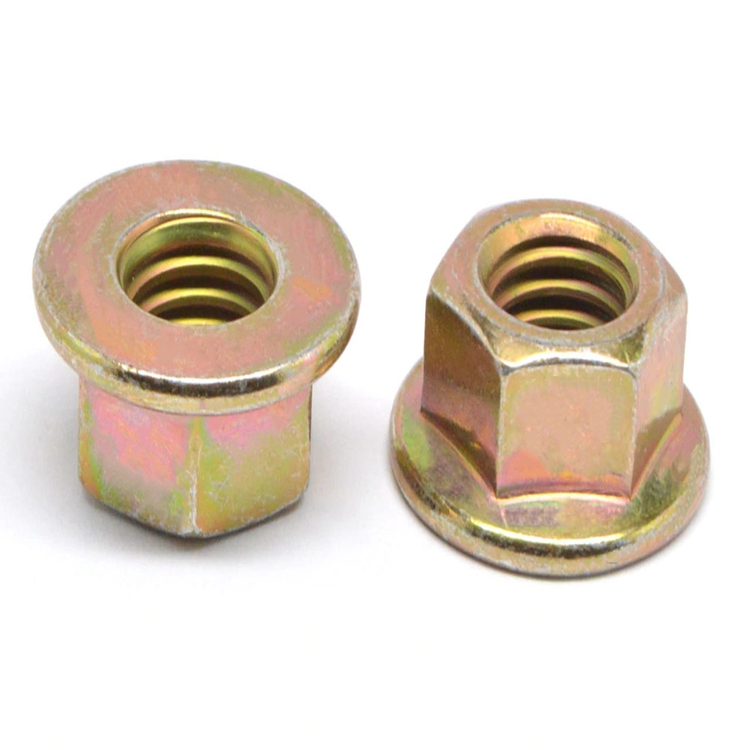screws factory
stu . 22, 2024 05:08 Back to list
screws factory
The Evolution of Screw Manufacturing A Journey Through the Screws Factory
In the world of manufacturing, the humble screw plays a crucial role, serving as an indispensable fastener in various industries, from construction to electronics. The screws factory, where these small yet mighty components are born, is a fascinating amalgamation of innovation, precision engineering, and historical evolution. This article delves into the intricacies of screw manufacturing, shedding light on the processes and technologies that shape this essential industry.
A Brief History of Screws
The history of screws dates back to antiquity, with evidence of their use in ancient civilizations such as the Greeks and Romans. However, it wasn’t until the 15th century, during the Renaissance, that screws began to gain prominence, with the invention of the screw press by Archimedes. This device laid the groundwork for modern screw manufacturing. By the Industrial Revolution, the demand for mass-produced screws surged, paving the way for factories dedicated solely to this critical component.
The Design Process
The journey of a screw begins with design. Engineers utilize computer-aided design (CAD) software to create precise models of screws that meet specific requirements, such as size, threading, and material. The design phase is crucial, as it determines the screw’s functionality and compatibility with various applications. Advanced simulations allow engineers to assess the performance and durability of the screw before it even goes into production, minimizing errors and enhancing efficiency.
Material Selection
Once the design is finalized, the next step is to select the appropriate materials. Screws can be made from various materials, including stainless steel, carbon steel, brass, and plastic, each chosen based on the intended use. For instance, stainless steel screws are favored for their corrosion resistance, making them ideal for outdoor applications, while brass screws are often used in electrical components due to their conductivity.
Manufacturing Processes
The heart of the screws factory lies in its manufacturing processes. The most common method for producing screws is cold heading, where metal rods are cut and shaped into screw heads using high-pressure machines. This process is favored for its speed and efficiency, enabling the production of thousands of screws per hour.
screws factory

Next comes the threading process, which can be achieved through several techniques, including rolling, cutting, or chasing. Each method has its advantages; for instance, rolled threads are stronger and have improved fatigue resistance compared to cut threads.
Quality Control
Quality control is paramount in screw manufacturing. Factories employ rigorous testing methods to ensure that each screw meets industry standards and specifications. This can involve tensile strength tests, dimensional inspections, and surface finish evaluations. The goal is to produce screws that are not only functional but also safe for their intended applications.
Automation and Technology
With advancements in technology, modern screws factories have become increasingly automated. Robotics and artificial intelligence play significant roles in streamlining production processes, reducing human error, and increasing output. Automated systems can monitor production lines in real-time, making adjustments as needed to maintain quality and efficiency.
Sustainability in Screw Manufacturing
As industries shift toward sustainability, screws factories are also adopting eco-friendly practices. This includes recycling metal scraps, reducing energy consumption, and exploring alternative materials. The focus on sustainability not only helps in minimizing environmental impact but also boosts the company's reputation in a market that is increasingly conscious of ecological issues.
Conclusion
The screws factory is a testament to the blend of tradition and innovation. From its historical roots to its current state, the manufacturing of screws has evolved dramatically, driven by advancements in technology and design. As the demand for high-quality, reliable fasteners continues to grow, so too will the importance of screws factories in supporting various industries worldwide. Ultimately, while screws may be small components, their significance in modern manufacturing cannot be overstated.
Latest news
-
Wire Bolts Suppliers: Durable & Reliable Fasteners for Every Project
NewsAug.25,2025
-
Premium Cabinet Bolts Supplier | Wholesale & Custom Solutions
NewsAug.24,2025
-
Reliable Axle Nuts Supplier | Quality & Precision Fasteners
NewsAug.23,2025
-
Durable Bolts for Lawn Mower Handle - Top Supplier & Manufacturer
NewsAug.22,2025
-
High-Quality Bolts for Lawn Mower Handle Supplier & Manufacturer
NewsAug.21,2025
-
Reliable Axle Nuts Supplier | High-Quality Automotive Parts
NewsAug.19,2025
